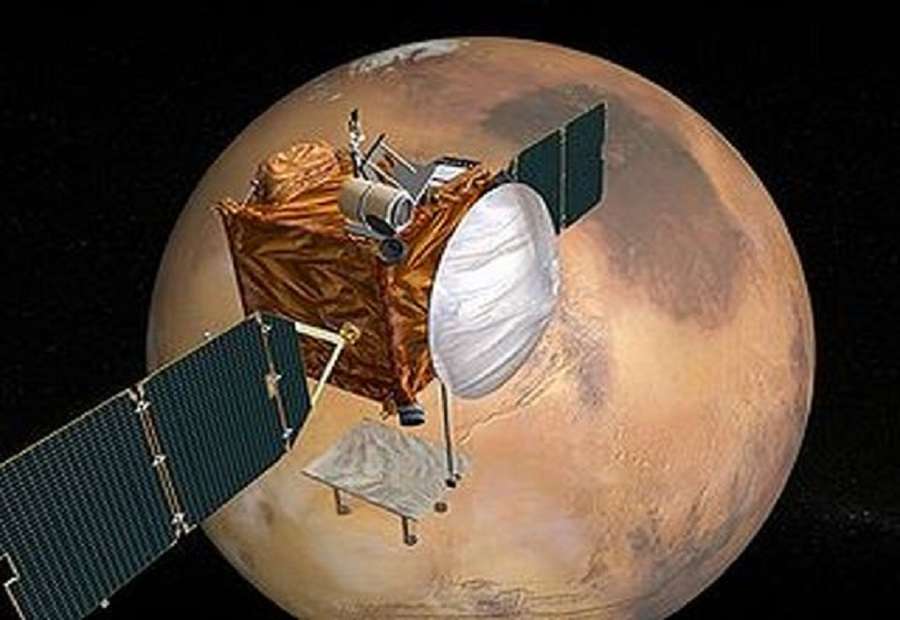The Mars Orbiter Mission (MOM), also called Mangalyaan is a space probe orbiting Mars since 24 September, 2014.
BENGALURU: India’s Mars Orbiter craft has run out of propellant and its battery drained beyond the safe limit, fuelling speculation that the country’s maiden interplanetary mission ‘Mangalyaan’ may have finally completed its long innings, a PTI report in the Deccan Chronicle, says.
The Rs 450 crore Mars Orbiter Mission was launched onboard PSLV-C25 on November five, 2013, and the MOM spacecraft was successfully inserted into Martian orbit on September 24, 2014 in its first attempt.
“Right now, there is no fuel left. The satellite battery has drained,” sources in the Indian Space Research Organisation (ISRO) told PTI. “The link has been lost”.
There was, however, no official word from the country’s national space agency, headquartered here.
With fuel on board, ISRO had been performing orbital manoeuvres on MOM spacecraft to take it to a new orbit to avoid an impending eclipse in the past.
“But recently there were back-to-back eclipses including one that lasted seven-and-half hours,” officials said on condition of anonymity, noting that all the propellant on board the ageing satellite had been consumed.
“As the satellite battery is designed to handle eclipse duration of only about one hour and 40 minutes, a longer eclipse would drain the battery beyond the safe limit,” another official said.
ISRO officials noted that the Mars orbiter craft functioned for almost eight years, well beyond its designed mission life of six months. “It has done its job and yielded significant scientific results,” they said.
The objectives of the mission were primarily technological and included design, realisation and launch of a Mars Orbiter spacecraft capable of operating with sufficient autonomy during the journey phase; Mars orbit insertion/ capture and in-orbit phase around Mars.
The MOM — a technology demonstration venture — carried five scientific payloads (total 15 kg) collecting data on surface geology, morphology, atmospheric processes, surface temperature and atmospheric escape process.
The five instruments are: Mars Colour Camera (MCC), Thermal Infrared Imaging Spectrometer (TIS), Methane Sensor for Mars (MSM), Mars Exospheric Neutral Composition Analyser (MENCA) and Lyman Alpha Photometer (LAP).
“MOM is credited with many laurels like cost-effectiveness, short period of realisation, economical mass-budget, and miniaturisation of five heterogeneous science payloads”, ISRO officials said.
*********************************************************************
Readers
These are extraordinary times. All of us have to rely on high-impact, trustworthy journalism. And this is especially true of the Indian Diaspora. Members of the Indian community overseas cannot be fed with inaccurate news.
Pravasi Samwad is a venture that has no shareholders. It is the result of an impassioned initiative of a handful of Indian journalists spread around the world. We have taken the small step forward with the pledge to provide news with accuracy, free from political and commercial influence. Our aim is to keep you, our readers, informed about developments at ‘home’ and across the world that affect you.
Please help us to keep our journalism independent and free.
In these difficult times, to run a news website requires finances. While every contribution, big or small, will makes a difference, we request our readers to put us in touch with advertisers worldwide. It will be a great help.
For more information: pravasisamwad00@gmail.com











